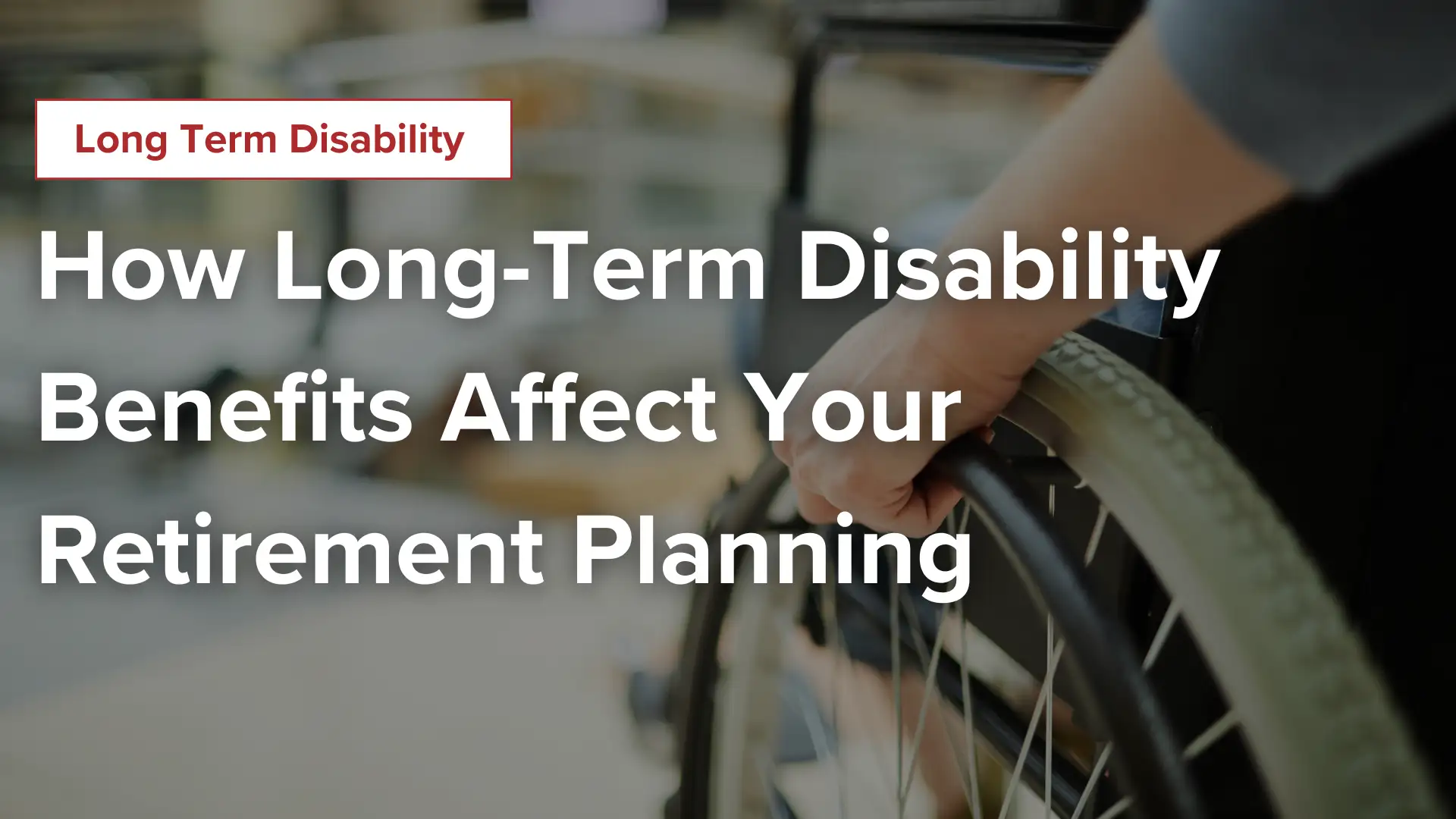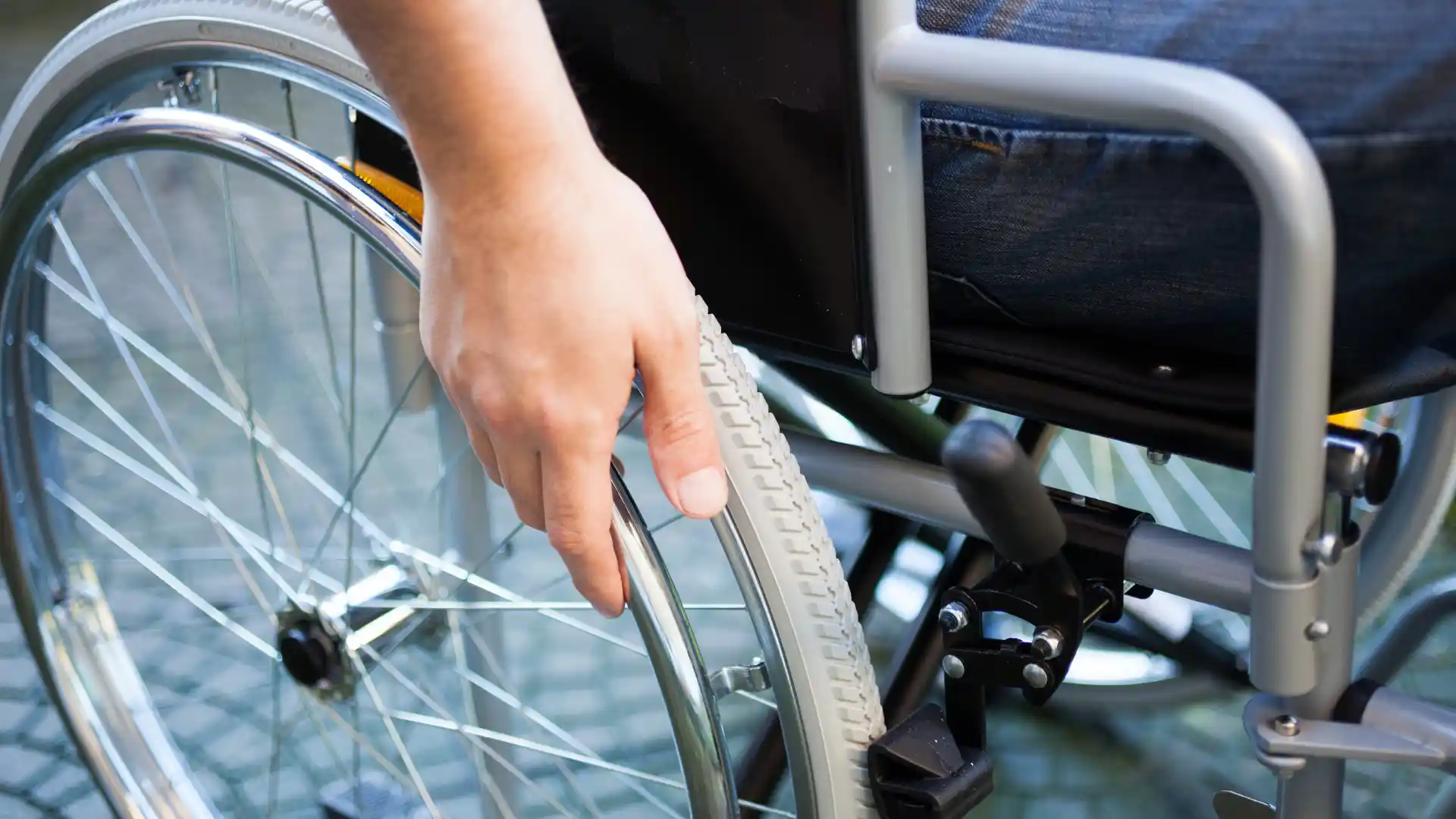Posted on Saturday, August 30th, 2025 at 9:00 am

Understanding how disability benefits and retirement income interact is essential for anyone who is blind or has a disability and relies on SSDI benefits to make ends meet. However, the interactions can be confusing, especially if you’re considering receiving disability and retirement benefits together before reaching your full retirement age.
What Are Disability Benefits (SSDI)?
Social Security Disability Insurance (SSDI) provides monthly payments and Medicare health insurance to individuals with disabilities who have the required work history. To be eligible for these benefits, you must have worked long enough and paid into the Social Security system through your payroll taxes.
The amount of the compensation you could receive through monthly payments depends on your earnings prior to filing for SSDI. This is also the same amount you would receive through retirement benefits if you waited until reaching the full retirement age to begin receiving payments. If you do not have work history, you may be able to seek SSDI benefits based on your parents’ or spouse’s income.
SSDI and Medicare Waiting Periods
If your claim for SSDI benefits is granted by the Social Security Administration (SSA), you will not begin receiving payments immediately. There is a five-month waiting period before SSDI benefits start, meaning you won’t see a payment until the sixth full month after the SSA determines your disability began.
Additionally, your Medicare coverage does not begin until 24 months after your SSDI benefits start. During this waiting period, you may be able to obtain health insurance through a previous employer.
Due to these waiting periods, it can be challenging for individuals with disabilities to receive the care they need at first. However, an experienced long-term disability lawyer can help you obtain coverage while you are waiting.
What Happens to SSDI at Full Retirement Age?
Individuals receiving SSDI benefits before taking their retirement benefits often wonder what will happen to their SSDI once they reach full retirement age. The answer is that your SSDI benefits will automatically change to retirement benefits upon reaching full retirement age.
SSDI benefits are already the same value as your full retirement age benefits, so there should be no change in your monthly payments. And because the process is automatic, you shouldn’t see any disruption in your income.
Can You Receive Both Disability and Retirement Benefits?
Typically, you cannot receive both disability and retirement benefits simultaneously, partially because disability benefits automatically convert to retirement benefits upon reaching the full retirement age.
In some rare cases, you may receive both types of benefits simultaneously, such as if you were already receiving early retirement benefits when you became disabled. However, if this occurs, the combined amount of your benefits would not exceed your disability benefits, making it appear that you are only receiving disability benefits.
No matter what the situation is, you cannot receive more compensation than you would be entitled to through disability benefits or full retirement benefits.
Planning for Retirement with Disability Benefits
 If you are old enough to begin receiving retirement benefits from the Social Security Administration and have a disability, you must determine whether you want to start taking your retirement benefits or file for SSDI. In most cases, filing for SSDI and waiting for it to roll over into retirement benefits once you reach full retirement age is preferable. This is because you won’t have to deal with early retirement penalties that reduce your benefits.
If you are old enough to begin receiving retirement benefits from the Social Security Administration and have a disability, you must determine whether you want to start taking your retirement benefits or file for SSDI. In most cases, filing for SSDI and waiting for it to roll over into retirement benefits once you reach full retirement age is preferable. This is because you won’t have to deal with early retirement penalties that reduce your benefits.
However, if you have other disability benefits, such as from workers’ compensation or a private disability insurance plan, that could change things. It’s always best to speak with a long-term disability lawyer before making a decision that could impact your finances for the rest of your life.
It’s also worth considering how taking disability benefits could impact your ability to save for retirement. If you are able to work in a limited capacity, it may be beneficial to do so rather than exiting the workforce early and receiving SSDI benefits.
And if your disability forces you to make early retirement plan withdrawals, such as from your 401(k), those withdrawals may be subject to penalties that could jeopardize the financial stability of your retirement in the future.
Contact Our Pennsylvania Long-Term Disability Lawyers
If you are receiving long-term disability benefits in Pennsylvania and have concerns about how it could affect your retirement plan, contact Capitan Law and (267) 419-7888 to speak with our team, who are experienced Philadelphia disability lawyers. We’ll help you understand how SSDI and retirement benefits interact and how you can maximize your compensation.